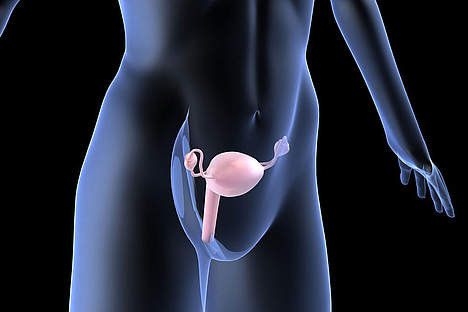
«Firstly, an early menopause means that women cannot fulfil their longing for a child and, secondly, the associated drop in hormone levels can prematurely trigger osteoporosis or other menopausal complications," explains Michael Feichtinger, lead author of the study from MedUni Vienna’s Department of Obstetrics and Gynecology. Also taking part in the study are the internationally renowned experts in preserving fertility, Samuel Kim from the University of Kansas School of Medicine (Prinicipal Investigator) and Mats Brännström from the University of Gothenburg. In the autumn of 2014, the latter successfully performed the first series of successful womb transplants in the world.
Using an animal model, the researchers have now attempted, for the first time, to perform an allogeneic ovary transplant (from one individual to another) — and this was done with the aid of a new immunosuppressive agent known as PIF (preimplantation factor). This was done at the World Health Organisation (WHO) Institute of Primate Research in Nairobi (Kenya), using two baboons. They were treated with PIF both before and after transplantation. The outcome: the transplant was successful in one of the animals, a functional monthly cycle was initiated — however it was not successful in the other.
Feichtinger: «Notwithstanding this, the study is still very promising. These results would suggest that successful ovarian transplantation might be possible in future. The researchers also demonstrated that the new immunosuppressive agent PIF functions well without
The results of this study were presented at the world’s largest reproduction conference in Salt Lake City at the end of October. Michael Feichtinger’s lecture was one of six «late breaking abstracts» and immediately preceded John Zhang’s lecture on his sensational technique known as the «


